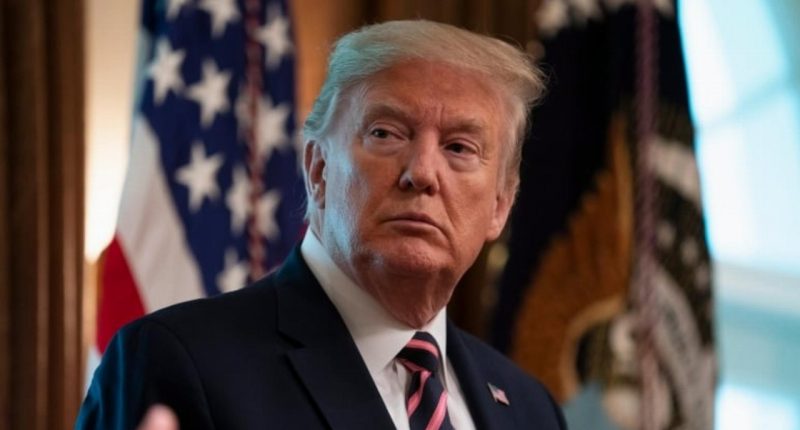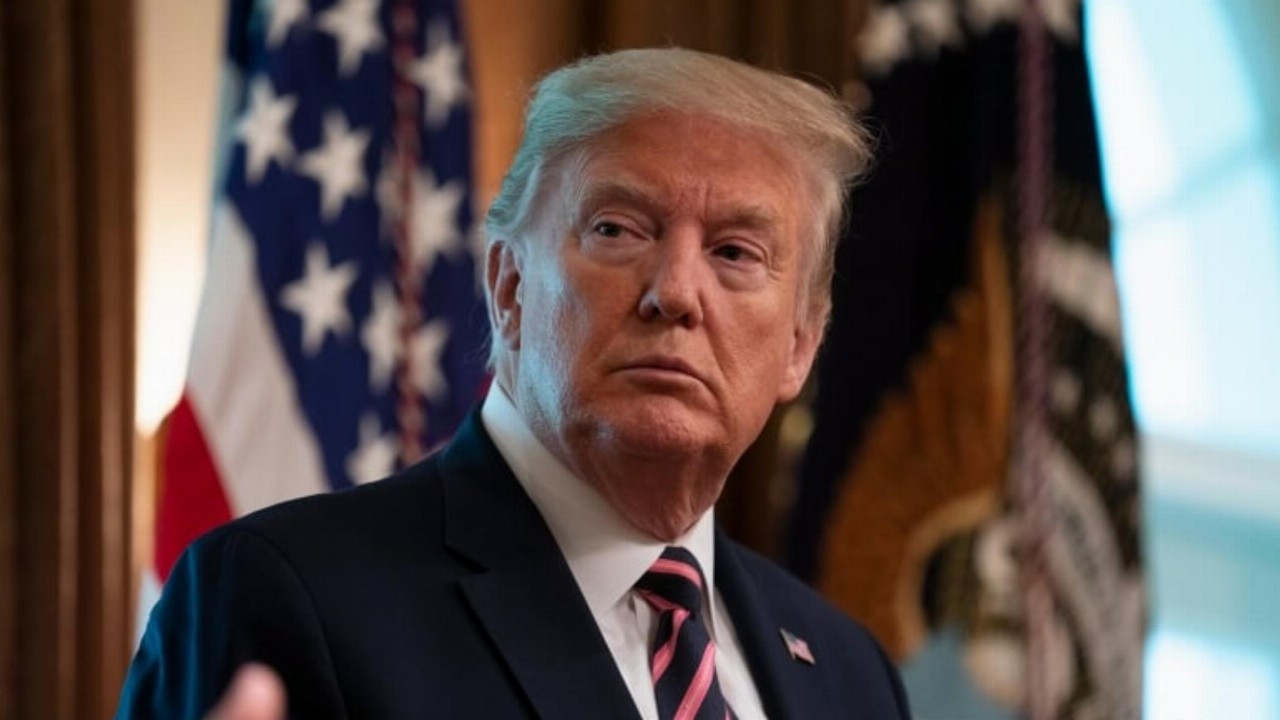- The Trump administration has confirmed that upcoming talks between Beijing and the U.S. over a Phase One trade deal have been delayed, not cancelled
- The President said yesterday he had cancelled planned talks with Beijing because he didn’t want to speak with China due to their handling of the COVID-19 pandemic
- However, President Trump’s aides later confirmed that the talks were not off completely, but just delayed for the time being
- China and the U.S. signed the deal in January, under which tariffs between the countries were rolled back and China committed to making more purchase of U.S. goods
- The delayed talks are designed to discuss the status of the deal and see how China is tracking along with the extra promise purchases
The Trump administration has confirmed that upcoming talks between Beijing and the U.S. over a Phase One trade deal have been delayed, not cancelled.
Worries that the deal was off began to mount after President Trump told reporters yesterday: “I don’t want to talk to China right now.”
The President was supposed to talk with Chinese leaders on the weekend about the status of the first phase of the trade deal, but talks were postponed. When asked about it, President Trump said he didn’t want to talk to the Chinese leaders because of the country’s handling of the COVID-19 pandemic.
Then, when asked if the U.S. was going to pull out of the trade deal, President Trump said: “We’ll see. We’ll see what happens.”
However, moments before he said he was cancelling talks with China, the President first said he was “postponing” talks — leading to speculation as to whether talks were cancelled for good, or cancelled for now.
However, President Trump’s aides later clarified that when the President said he was cancelling talks, he did not mean permanently. The Phase One deal is still set to go ahead, but a new date for talks between Chinese and U.S. leaders is yet to be set.
The Phase One deal
After a trade war which lasted 18 months, the first-phase deal was signed by China and the U.S. in mid-January, back when COVID-19 was just a small foreign virus contained to certain parts of China.
The initial deal rolled back some tariffs between the nations and boosted China’s purchases of U.S. good and services.
At the centre of the deal was a pledge by China to buy an additional US$200 billion (roughly A$278 billion) of U.S. farm products and other goods and services over two years.
The upcoming talks were designed to discuss the status of the deal — essentially, to see how China is tracking along with their commitments to the deal after U.S. tariffs were rolled back.
This means while it’s unclear why a new date has yet to be set, China has landed itself some more time to buy U.S. goods and prove that the country’s officials are living up to their word.
China’s response
Following President Trump’s remarks, China’s Global Times — a newspaper which speaks on behalf of the Chinese government — said the President was being misleading.
According to the Global Times report, Chinese experts said the talks did not go ahead because there was not a “good atmosphere” for meaningful talks because of the Trump administration’s recent criticisms of China, which range from China’s handling of the pandemic to its territorial claims in the South China Sea.
Nevertheless, the Global times said both countries are still committed to their role in the trade deal.







